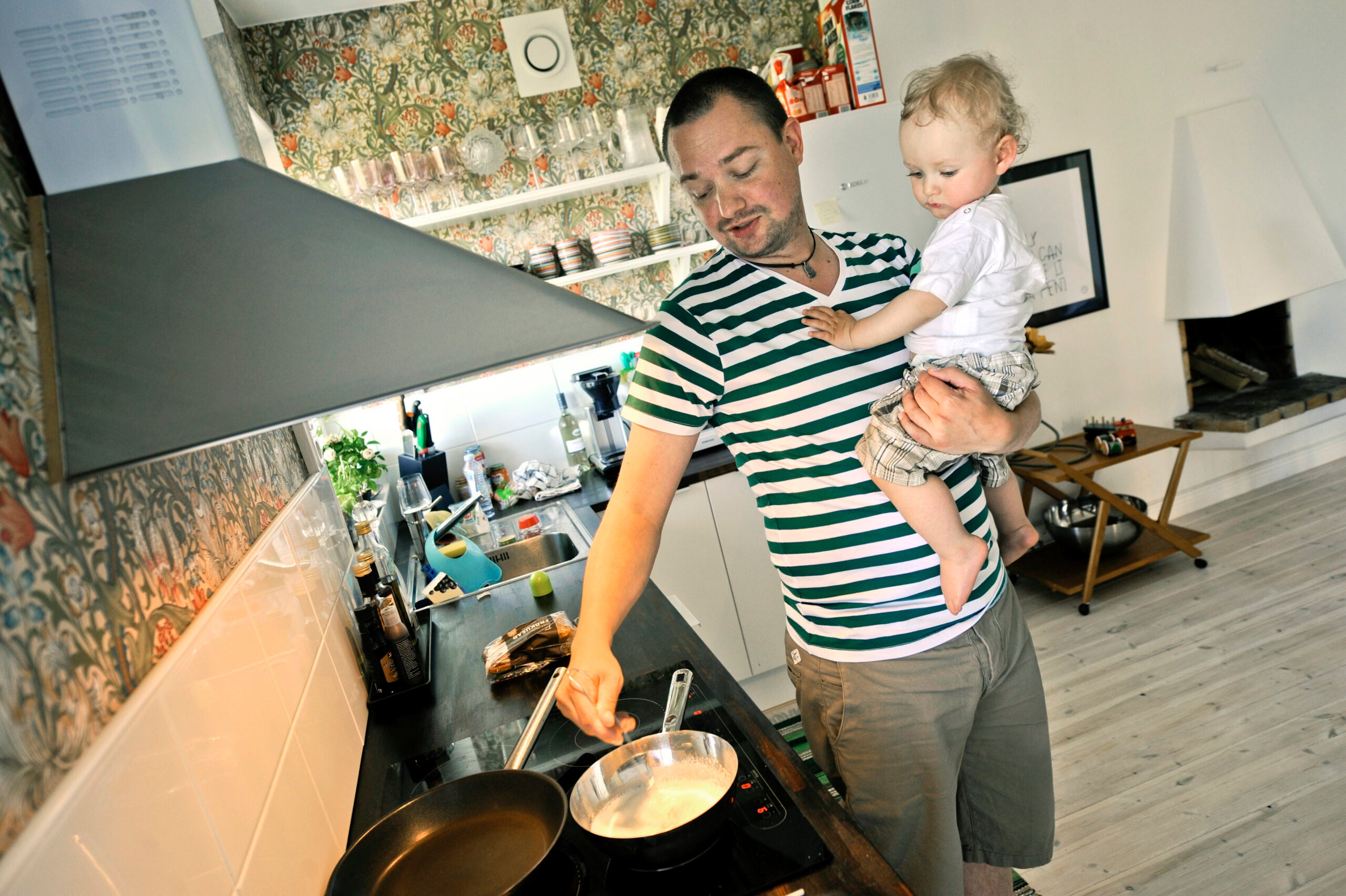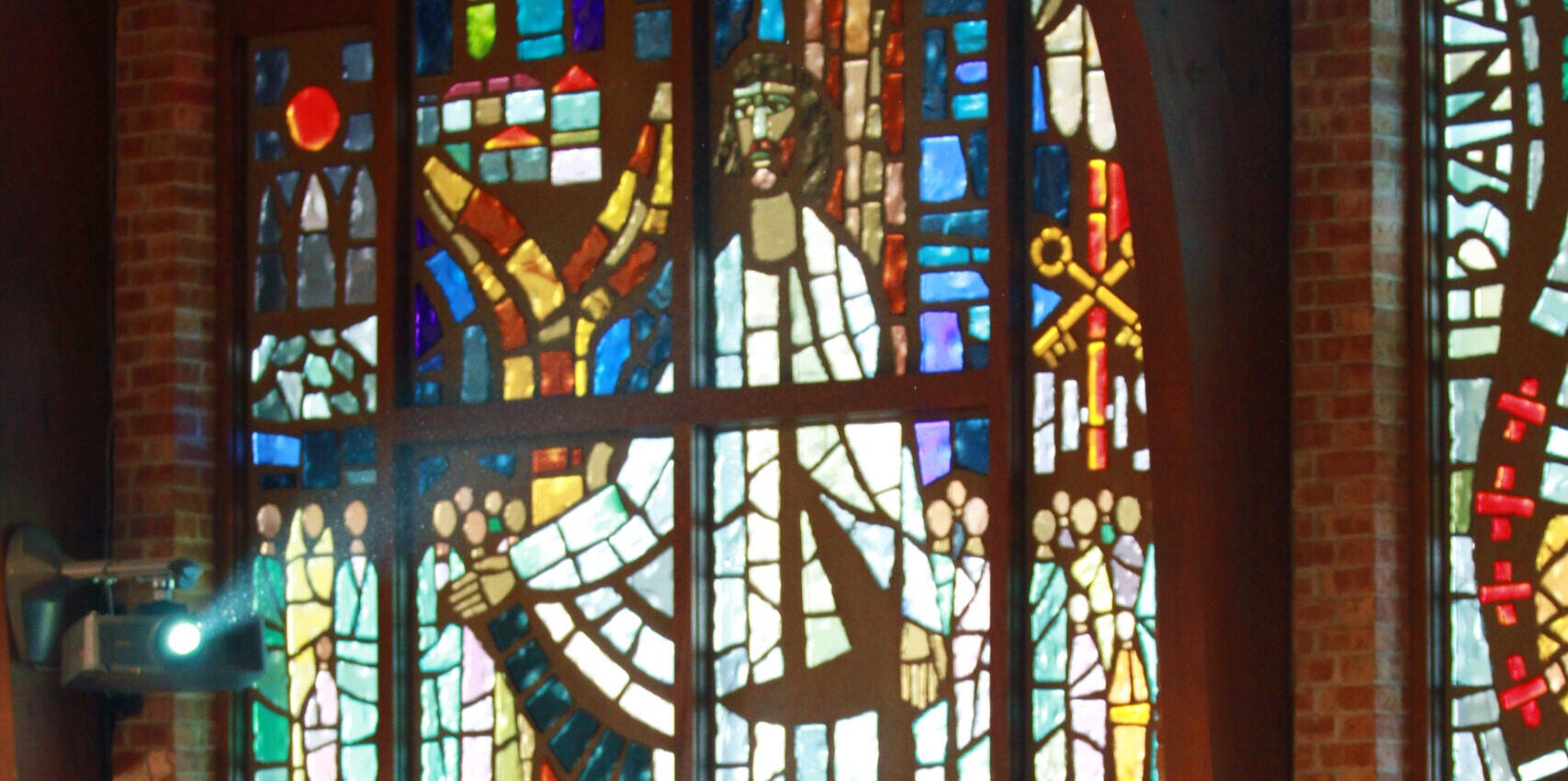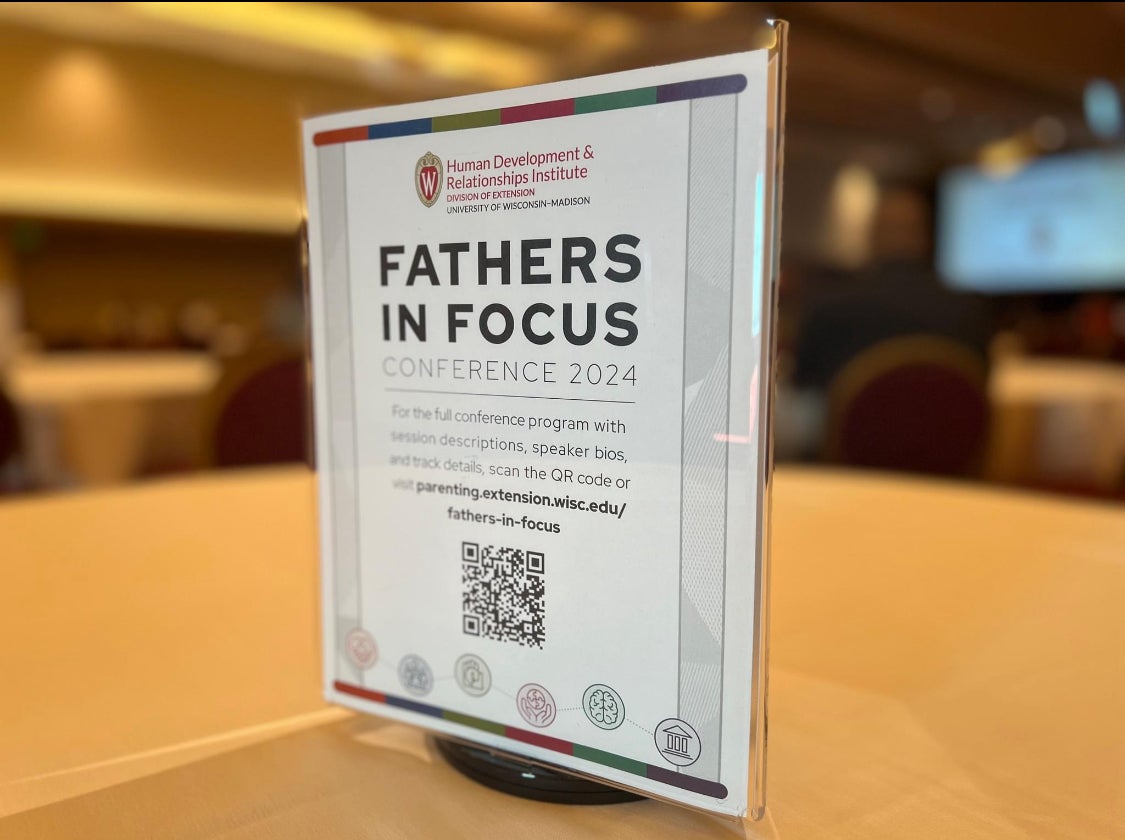A national organization for stay-at-home dads hosted its annual convention in Milwaukee last week, hoping to promote community for a small and often stigmatized group.
The National At-Home Dad Network’s “HomeDadCon” was meant to “reaffirm, recharge and reconnect” fathers with what it means to be a parent, said Jonathan Heisey-Grove, the network’s board president and a father of two.
“This gives us a chance to not only learn about what others have done and what others can do, but (it) also gives us a chance to just get a little bit of a break and enjoy ourselves,” he said. “But (it’s) always coming back to: How are we going to become better by the end to bring that home to the family?”
News with a little more humanity
WPR’s “Wisconsin Today” newsletter keeps you connected to the state you love without feeling overwhelmed. No paywall. No agenda. No corporate filter.
Heisey-Grove joined Wisconsin Public Radio’s “Central Time” with Noelle Chesley, chair of the sociology department at the University of Wisconsin-Milwaukee. Chesley also presented at the convention.
While Chesley said the number of stay-at-home dads is still pretty small, that underscores the need for such an organization. Mothers might have more informal opportunities to connect.
Dads make up 18 percent of all stay-at-home parents, according to the Pew Research Center. That has risen from 11 percent in 1989.
The National At-Home Dad Network says its definition for stay-at-home fathers does not consider employment. The network’s definition is, “A father who is the daily, primary caregiver of his children under age 18.”
Men face different challenges than women in stay-at-home parenting. Chesley said gender wage gaps remain a large, structural problem. If a father is staying at home and a mother is out working, the mother might bring in less money.
“It’s even harder when, on average, women earn less,” she said.
Fathers also tend to lack the level of preparation that mothers get before becoming parents, Chesley said. Heisey-Grove agreed.
“The parenting realm is predicated on moms being the primary caregivers,” Heisey-Grove said. “There (are) so many structures that have been developed over the decades that have been predicated on women being caregivers. It’s hard for dads to get inroads in those spaces.”
Exposure to parenting tasks makes a big difference, Chesley said. Parents can get better at taking care of their children over time. It’s a skill, she said, and dads can gain satisfaction from it just like mothers do.
The network’s website says, “Dads don’t babysit. (It’s called parenting.)”
Stigma against fathers handling tasks at home is another challenge. Heisey-Grove said “Mr. Mom” is a common moniker referencing the 1980s comedy about a father who switches roles with his wife. Though the movie came out decades ago, the stereotype persists.
That’s why it’s important to have fathers be present at parenting meetings, schools and community events, Heisey-Grove said.
Heisey-Grove is the parent of a teenager and a soon-to-be teenager. He has been a stay-at-home dad for 11 years. He became one out of circumstance, rather than choice. Heisey-Grove said he came into the role unprepared. Finding the network allowed him to meet others in the same situation. They could grow as parents together.
“Parenting has a lot of rewards that you miss if you ignore it and decide not to do it,” he said.
Wisconsin Public Radio, © Copyright 2025, Board of Regents of the University of Wisconsin System and Wisconsin Educational Communications Board.







